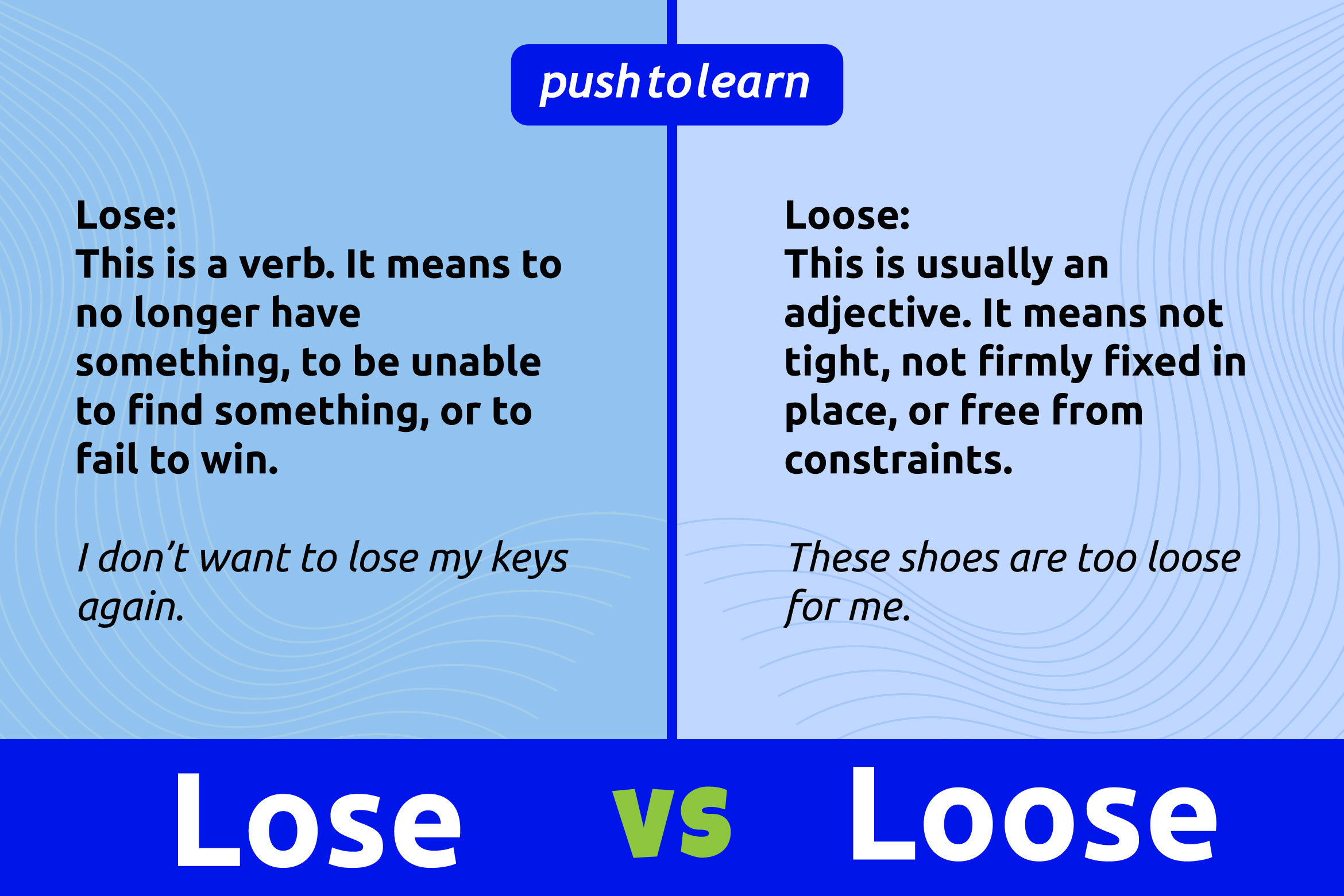by PushtoLearn
Lose vs Loose
Table of Contents
Lose vs. Loose: Exercise and Quiz
Definitions and Differences
⭐ Lose: This is a verb. It means to no longer have something, to be unable to find something, or to fail to win.
Examples:
➡️ "I don’t want to lose my keys again."
➡️ "They might lose the game tonight."
⭐ Loose: This is usually an adjective. It means not tight, not firmly fixed in place, or free from constraints.
Examples:
➡️ "These shoes are too loose for me."
➡️ "The dog got loose from its leash."
Lose vs Loose Illustration

Rules to Remember
Lose has only one 'O' and is always a verb.
Loose has two 'O's and is usually an adjective.
Common Errors
Using "loose" instead of "lose":
❌ Incorrect: "I don’t want to loose my job."
✔️ Correct: "I don’t want to lose my job."
Using "lose" instead of "loose":
❌ Incorrect: "My belt is lose."
✔️ Correct: "My belt is loose."
Everyday Use
When you talk about misplacing items, competitions, or not winning, use "lose."
➡️ Example: "She hopes not to lose her keys again."
When describing something that is not tight, wobbly, or set free, use "loose."
➡️ Example: "The bolt is loose and needs tightening."
FAQ
What is the past tense of "lose"?
The past tense of "lose" is "lost."
Example: "He lost his wallet yesterday."
Can "loose" be used as a verb?
Yes, but it's less common. As a verb, it means to release or set free.
Example: "They will loose the dogs at dawn."
How can I remember the difference between "lose" and "loose"?
Think of "lose" as losing one "O" (like losing something).
Think of "loose" as having extra space with two "O"s, meaning not tight.
Why do people confuse "lose" and "loose"?
The words look and sound very similar, making them easy to mix up.
What are some synonyms for "lose" and "loose"?
Lose: miss, fail, forfeit.
Loose: slack, relaxed, free.

